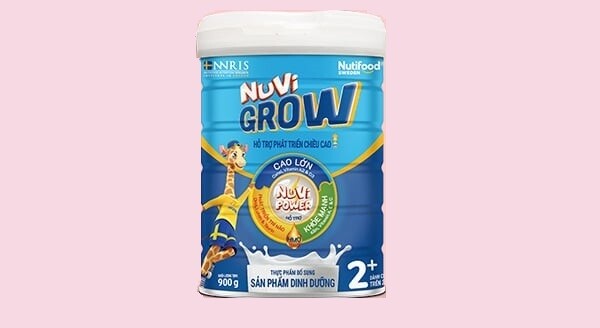Calcium is the cornerstone of bone and dental health, comprising about 99% of the body’s calcium. Ensuring adequate calcium intake is essential for building strong bones and reducing the risk of osteoporosis later in life. So, how can we effectively boost calcium levels for children? Here are some expert-recommended methods for parents to consider.

Provide the Right Amount of Calcium
Calcium is critical for bone development and children’s height. It is essential that parents ensure their children receive the necessary daily calcium intake.
The required amount of calcium varies depending on the child’s age. The following are some general guidelines:
Ages 1-3: Approximately 700 mg of calcium per day.
Ages 4-8: About 1,000 mg of calcium is recommended daily.
Ages 9-18: A daily intake of around 1,300 mg of calcium is advised.

Food is a natural and essential source of calcium.
However, it is important to note that excessive calcium supplementation can lead to serious health issues. One immediate effect is the formation of kidney stones. Excess calcium can accumulate in the kidneys, resulting in painful problems and difficulties with urination.
Furthermore, an excess of calcium can contribute to high blood pressure, a risk factor for various cardiovascular diseases. This can potentially impact children’s overall health in the future, and they may experience digestive issues such as nausea, vomiting, constipation, or diarrhea.
Therefore, parents should focus on providing the correct amount of calcium for their children, preferably through a well-balanced diet.

Include Vitamin D3 for Better Absorption
Vitamin D3 plays a crucial role in helping the body absorb calcium more efficiently. It is essential for maintaining bone health and supporting children’s height development.
A deficiency in vitamin D3 can lead to weak bones and health issues such as rickets in children or osteoporosis in adults. When the body doesn’t get an adequate amount of vitamin D3, calcium absorption decreases, resulting in insufficient mineral supply to the bones, which affects overall development.

Sunlight is an important and natural source of vitamin D3.
Natural Sources of Vitamin D3
Sunlight: Sunlight is an essential natural source of vitamin D3. Encourage children to play outdoors for approximately 15-30 minutes daily so their bodies can synthesize vitamin D from sunlight. However, it is crucial to avoid harsh sunlight, especially during peak hours, to protect their skin from UV damage.
Food: Certain foods are rich sources of vitamin D3, providing the body with necessary minerals. Fatty fish like salmon, tuna, and mackerel are excellent choices as they are rich in vitamin D and omega-3 fatty acids, which are beneficial for brain development and cardiovascular health.
Egg yolks are another easily accessible source of vitamin D3 and can be seamlessly incorporated into children’s daily diets.
Mushrooms: Some mushrooms, particularly those grown in sunlight, contain vitamin D. They are a fantastic option, especially for vegetarian children.

Add “Transport” Vitamin K2 to the Mix
Vitamin K2 is essential for transporting calcium into the bones and preventing its accumulation in the bloodstream. This optimization ensures that calcium is efficiently and safely utilized by the body.
A lack of sufficient vitamin K2 can lead to calcium buildup in the wrong places, resulting in serious health issues such as atherosclerosis and cardiovascular diseases.
Soy products, meat (especially liver), certain cheeses, and yogurt are excellent sources of vitamin K2.
Vitamin K2 supplementation is particularly important during a child’s growth stages. A well-balanced diet that includes adequate calcium, vitamin D3, and vitamin K2 will optimize bone health and support height development. Incorporating vitamin K2-rich foods into daily meals will promote healthy growth and reduce potential health risks in the future.

Foster a Healthy Lifestyle
Encourage children to engage in physical activities that strengthen their overall health and play a crucial role in enhancing calcium absorption. Exercise improves blood circulation, ensuring that oxygen and nutrients are efficiently delivered to cells, thereby supporting bone development.
When children participate in physical activities, their bodies stimulate the production of growth hormones, which are vital for height development and promote bone cell formation and growth. Research has shown that active children tend to be taller and exhibit better overall development.

Encourage children to take part in physical activities that enhance their health.
Running and Jumping: These fundamental yet effective forms of exercise offer a twofold benefit. They not only improve cardiovascular health but also stimulate muscle and bone development. Activities like skipping rope or light jogging enhance children’s endurance, agility, and flexibility.
Swimming: Swimming is a fantastic comprehensive activity that helps children develop major muscle groups. The water provides resistance, building strength and endurance, while also offering a fun way to relax and reduce stress.
Other Sports: Sports such as soccer, basketball, or badminton improve coordination and agility. These sports typically involve continuous movement, which is beneficial for cardiovascular health and bone strength.

Ensure Adequate Sleep
Sleep is the time when the body recovers and develops, especially for children during their growth stages. While sleeping, the body undergoes various physiological processes necessary for development, including the production of growth hormones. Children need 8-10 hours of sleep each night to optimize height development, as growth hormones are predominantly released during deep sleep.
Sufficient sleep also improves children’s focus and learning abilities, supporting their intellectual growth. Additionally, sleep helps regulate mood and emotions, contributing to a happier and more confident outlook.

Ensure your child gets enough sleep.
By providing the right amount of calcium, along with vitamins D3 and K2, and adopting a balanced diet and healthy lifestyle, parents can help children absorb calcium effectively and maximize their height development potential. Remember, growth is a long-term process that requires patience and dedicated care.
|
Nuvi Grow, with its unique Nuvi Power formula, offers a golden trio of nutrients: Calcium, Vitamin K2, and Vitamin D3. This formula has been meticulously researched by the Nutifood Nutrition Research Institute of Sweden (NNRIS) to help activate and optimize children’s potential for height and cognitive development. Calcium strengthens bones, Vitamin D3 enhances calcium absorption from food into the bloodstream, and Vitamin K2 ensures that Calcium is directed into the bones where it is needed most. Nuvi Grow also contains DHA, Lutein, and Taurine, which work together to support brain development and enhance memory and learning abilities. With just 3 glasses of Nuvi Grow daily, children can grow taller and smarter with confidence.
|
Superfoods That Are Best Enjoyed Raw
“Some foods are best enjoyed in their raw state to retain their nutritional value and taste. Cooking certain foods can result in a significant loss of essential nutrients. This includes vegetables like broccoli, bell peppers, and onions, as well as fruits and even chocolate. Let’s explore the benefits of keeping it raw with these superfoods.”











































